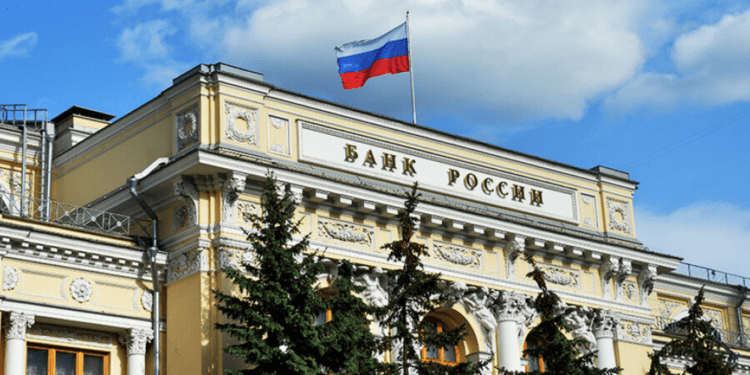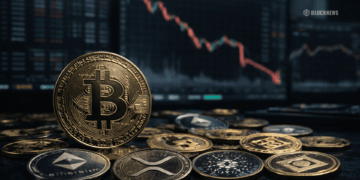Despite rising public adoption and ongoing regulatory reforms, Russia’s Central Bank raises worries about the possible expansion of cryptocurrencies within the local financial system.
- According to recent data, Russian families own more cryptocurrency assets than mutual funds or gold.
- The study reveals that 0.4% of surveyed Russian families own Bitcoin or other cryptocurrencies, which is higher than the adoption rates of gold and mutual funds.
The First Deputy Chair of the Russian Central Bank, Ksenia Yudaeva, has highlighted concerns about the possible spread of cryptocurrencies within the Russian financial system. Although the Central Bank has consistently opposed using cryptocurrencies domestically, it acknowledges their potential for use abroad.
Regulatory Safeguards and Cross-Border Settlements
The Central Bank of Russia warns that platforms that enable cross-border cryptocurrency settlements must take precautions to prevent the spread of cryptocurrencies within the domestic financial system. The Bank’s top priority is to stop any social unrest brought on by the widespread use of digital assets. However, as Russian banks encountered difficulties in dealing with foreign counterparts, the Central Bank changed its position and now permits the use of “private cryptocurrencies” for international trade.
Amendments to Facilitate Experimental Use of Cryptocurrencies
The Central Bank has been given the right to build up an experimental platform for cryptocurrencies and digital financial assets (DFA) in international settlements thanks to revisions to the statute on experimental legal regimes in the field of digital innovation that the Russian Duma proposed in April 2023. This platform aims to investigate how digital financial assets can be used in cross-border transactions. The amendments do not legalize the use of cryptocurrency for domestic transactions. It is crucial to remember this.
Increasing Crypto Adoption among Russian Citizens
Despite the Central Bank’s concerns, a new study shows that Russians increasingly favor cryptocurrency as a form of asset storage. Russian families currently possess more money in crypto assets than in mutual funds or gold, according to the Central Bank’s national survey of consumer and household finances, which was performed from April to August 2022. Over 6,000 homes and 12,000 people from 38 different regions of Russia participated in the poll. Russian households had cryptocurrency assets with a median value of 17,500 rubles ($225), which was higher than their holdings of gold and mutual funds.
Crypto Adoption in Contrast to Government Estimates
The survey’s results oppose earlier official projections claiming that only 12% of Russians were cryptocurrency users. According to the study, 0.4% of the polled households said they owned Bitcoin or other cryptocurrencies, outpacing the 0.3% adoption rates for mutual funds and gold, respectively. This suggests that the adoption of cryptocurrencies in Russia may be more than previously thought.
Geopolitical Context: Circumventing Sanctions and Exploring Partnerships
The rise in cryptocurrency activity in Russia is related to that nation’s involvement in the Ukraine conflict and the enforcement of Western sanctions. Russian organizations can get past restrictions imposed by Western financial systems, like being cut off from the SWIFT banking system using cryptocurrency.
Additionally, Russian lawmakers are preparing to construct a national cryptocurrency exchange. They are looking into collaborating with Iran to produce a gold-backed stablecoin for international trade settlements, which would lessen reliance on conventional currencies like the dollar, ruble, or rial.
Conclusion
The proliferation of cryptocurrencies within the domestic financial system and its societal effects continue to worry the Central Bank of Russia. Although the Bank permits using cryptocurrencies for cross-border payments, it is aggressively putting safety measures in place to stop their widespread acceptance domestically. However, recent survey data shows that cryptocurrencies are becoming increasingly popular with Russians, with crypto assets outpacing gold and mutual fund holdings.
The geopolitical environment, which includes Western sanctions and initiatives to investigate alternative financial options, makes Russia’s use of cryptocurrency even more complicated. Regulation, public adoption, and geopolitical issues will interact to influence the future of cryptocurrencies in Russia as the nation navigates this changing market.














